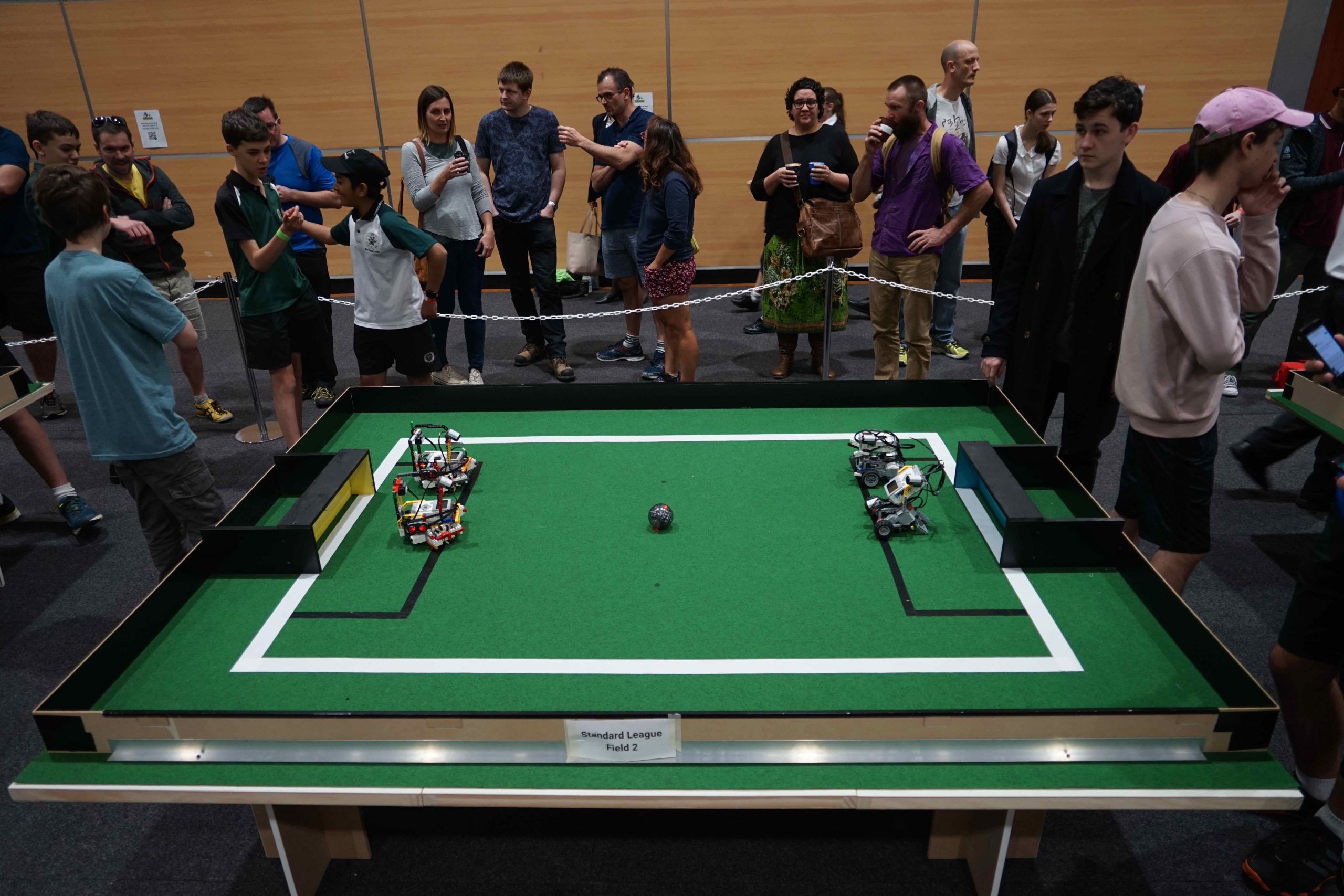Students are required to design, build, and program two robots to compete in a dynamic game of robot soccer against an opposing pair of robots.
Soccer robots must be fully autonomous, so they need to employ a variety of sensors to find the ball, point in the right direction, and stay inside the playing area. These robots use a ball that either emits infrared light, or is bright orange in colour, depending on the division. Students will need to come up with creative gameplay strategies to outsmart the opposition. Each game can be unpredictable and a lot of fun – you never know what might happen!
Due to its ease of introduction to the uninitiated, many students choose to use LEGO Mindstorms kits to build and program their robots. Other students select alternative platforms and even build their own microprocessor robots from basic electronic components. A range of sensors can be attached to all of these platforms, including electronic compasses, sonars, light sensors, infrared sensors, and cameras.
There are four divisions of the soccer challenge, each with slightly different rules and levels of difficulty.
Simple Simon Soccer is a beginner divison that some states and territories run at select events. Teams are limited to only using standard lego parts and the IR Seeker ball sensor, creating a low barrier to entry and fun learning environment.
The standard division is the entry-level division for RoboCup soccer. Robots must be made from LEGO parts only (except for certain sensors). This allows for simple construction and programming. Robots must use infrared sensors to follow a special ball which emits infrared light. Each robot must be a maximum of 1kg and fit within a 22cm cylinder size limit.
The lightweight division is the mid-level division for RoboCup soccer. Robots can be made from anything – you can use LEGO, custom build your robot, or have a hybrid of both. Robots must use infrared sensors to follow a special ball which emits infrared light. Each robot must be a maximum of 1.1kg and fit within a 22cm cylinder size limit.
The open division is the highest-level division for RoboCup soccer. Open soccer is played with a bright orange-coloured ball, so robots use cameras and computer vision software to detect and follow the ball.
Robots can be made from anything – you can use LEGO, custom build your robot, or have a hybrid of both. Some cameras are even compatible with LEGO EV3s.
Each robot must be a maximum of 2.5kg and fit within a 22cm cylinder size limit.

RoboCup soccer is played on a 2.4 x 1.8 metre green carpet field with white boundary lines and two coloured goals.
The materials needed to make a field are low-cost and easily found at your local hardware store. For storage, you can roll up the carpet when you’re finished for the day. Be sure to check out our field construction guide if you want some ideas on how to construct your own field.
Please note the Simple Simon Soccer field differs from this field, please see the Simple Simon Soccer rules below for further information.
Make sure you read the latest rules for this challenge. These rules can change from year-to-year.
Check out our Getting Started section for tutorials and more information about how to start making your soccer robots!
Modern Teaching Aids supplies many of the kits and parts you may need to construct a LEGO soccer robot.